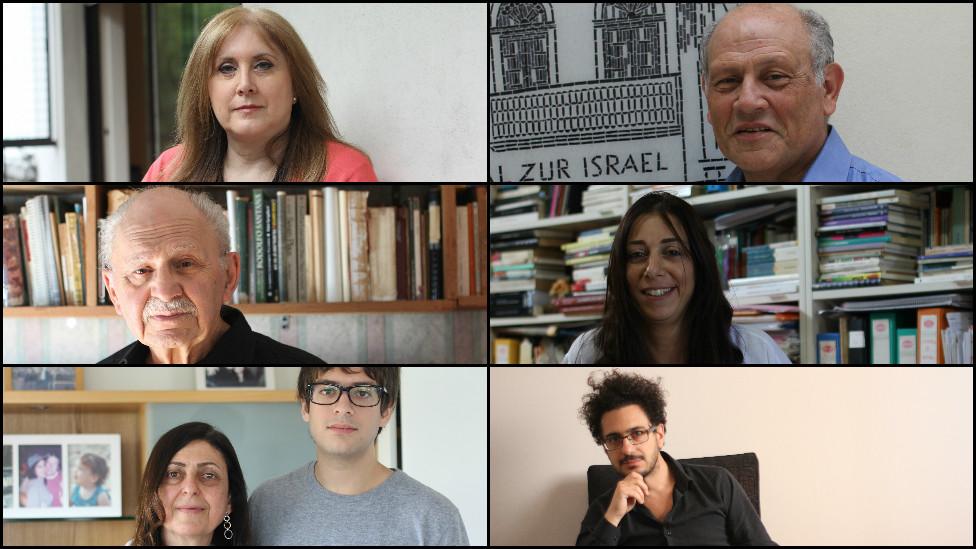Spain gets 127,000 citizenship applications from Sephardi Jews
- Published
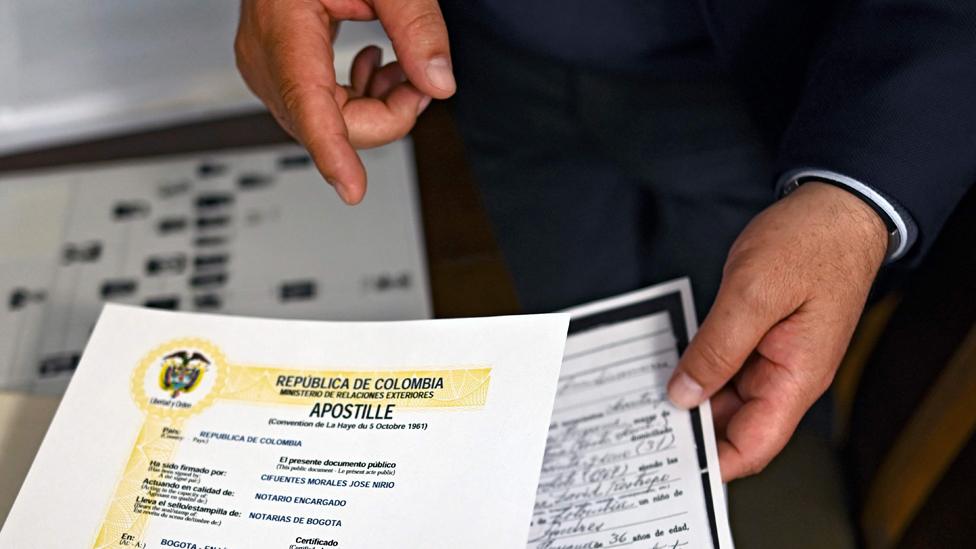
Applicants had to prove connections with Spain going back centuries
A deadline for Jews living outside Spain to request Spanish nationality has expired with 127,000 applications, most of them from Latin America.
Jews living in Mexico top the list, with about 20,000 requests, followed by Jews in Venezuela and Colombia.
In 2015, Spain passed a law to atone for the medieval expulsion of Sephardi Jews from the country.
In the 15th Century, Spain's Catholic monarchs, having defeated the Muslim Moors, forced Jews to convert or leave.
Applicants have had to prove a family connection with medieval Spain - and in many cases, that proved difficult. In addition, they had to get their Sephardi origins certified by a solicitor in Spain.
Mass expulsion
Spanish Jews gave the Hebrew name "Sepharad" to the Iberian peninsula. So descendants of Jews from Spain and Portugal still describe themselves as Sephardi Jews.
Applicants for Spanish nationality were entitled to keep their current nationality, though in general Spain does not allow dual citizenship.
Applicants had to pass tests on Spain's culture and constitution, and show competence in Spanish or the Judeo-Spanish variant Ladino.
A similar scheme in Portugal is still open.
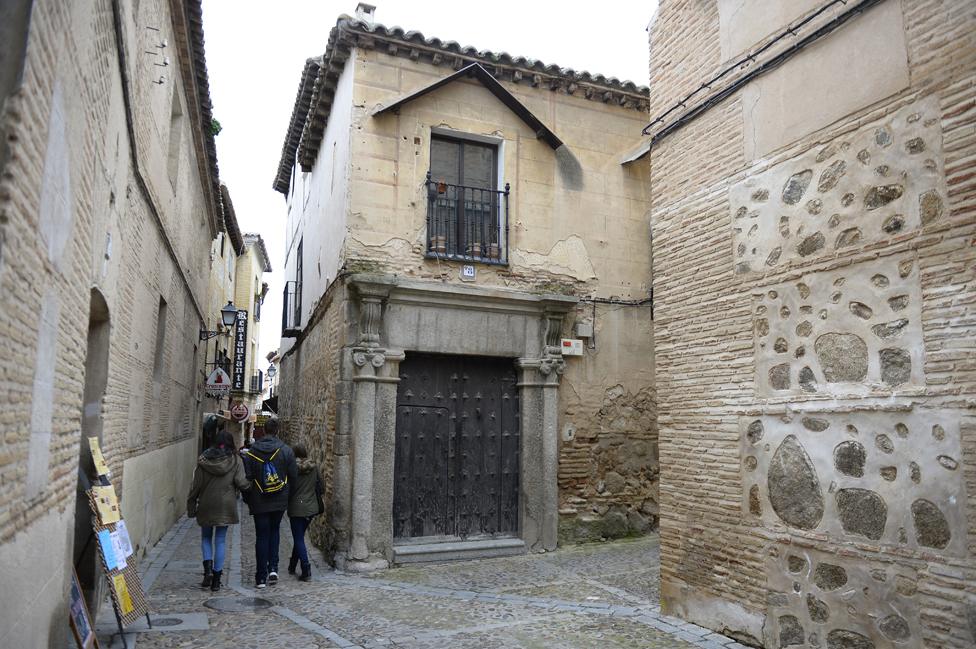
The old Jewish quarter of Toledo was a major cultural centre in the Middle Ages
In the Moorish kingdom of Al-Andalus, the Jewish community generally flourished, their religion was tolerated and Jewish scholars made a significant impact, spreading eastern knowledge to medieval Europe.
Historians reckon there were about 200,000 Jews in Spain before their expulsion, which followed the Catholic conquest of Granada in 1492. Sephardi Jews settled mainly in North Africa, the Balkans, Turkey and, later, Latin America.
Jews who get Spanish nationality under the new law are not required to move to Spain. The naturalisation ceremony can be performed at a Spanish consulate in their home country.
Spanish media say there was a rush to submit applications just before the 30 September deadline; 67,000 were registered in September.
There are estimated to be at least two million Sephardi diaspora Jews worldwide.
Inquisition records
Rocío Sánchez, a Colombian genealogist, said "the majority of the people that I have dealt with who want to benefit from a Spanish passport are young people, between 25 and 35 years old, almost all professionals".
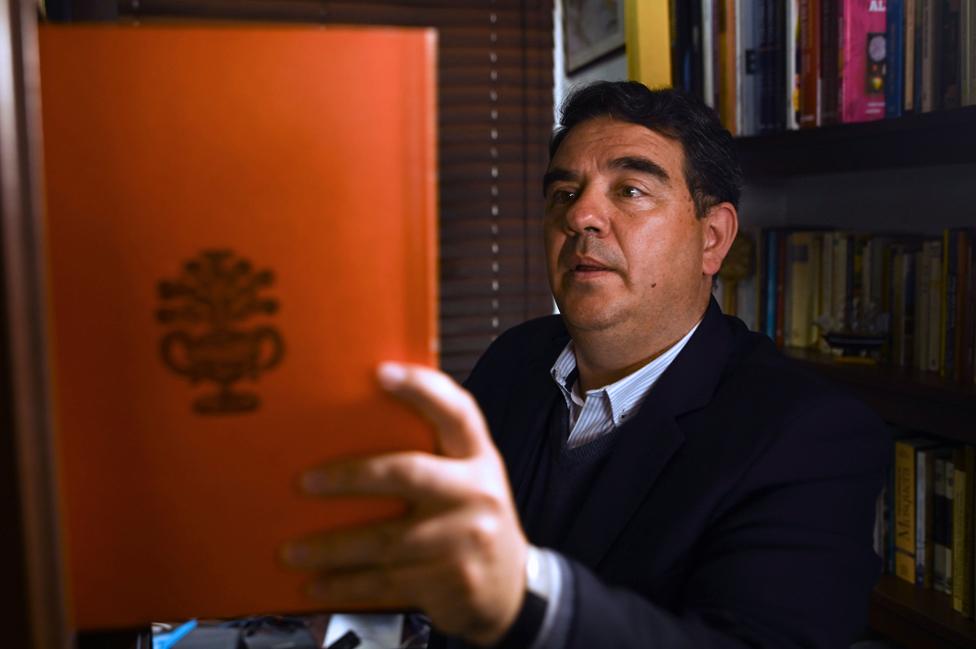
Andrés Villegas, a Colombian, found a Jewish ancestor who was born in 1595
AFP news agency interviewed a Colombian Catholic engineer, Andrés Villegas, who is now hoping for "a pleasant old age" in Spain.
He researched church records in Colombia, tracing his ancestry, and examined records of the Inquisition in Cartagena, who punished anyone practising Jewish rites.
He found that an ancestor, militia captain Cristóbal Gómez de Castro, born in 1595, had been prosecuted by the Inquisition for "Judaising". Colombia was part of the Spanish empire at the time.
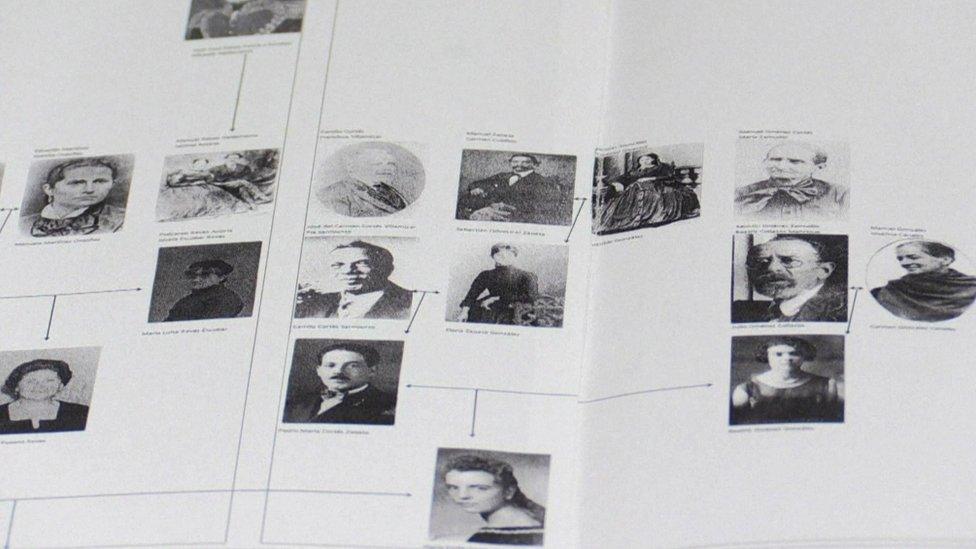
Part of the Villegas family tree: Claimants spent hours poring over old documents
Ángel Calderón, an Argentinian Sephardi Jew living in the Colombian capital Bogotá, praised the Spanish king for reaching out to the descendants of expelled Jews.
"The fact that King Felipe of Spain tells us face to face how much they wronged us, and that we are welcome home - this is something that heals, or seeks to repair the harm caused by a historical injustice," he told AFP.
Before the 2015 law, Sephardi Jews could only request Spanish nationality after two years' residence in Spain, or through a special government dispensation. In most cases they then had to give up their existing nationality to become Spanish.
- Published2 October 2015
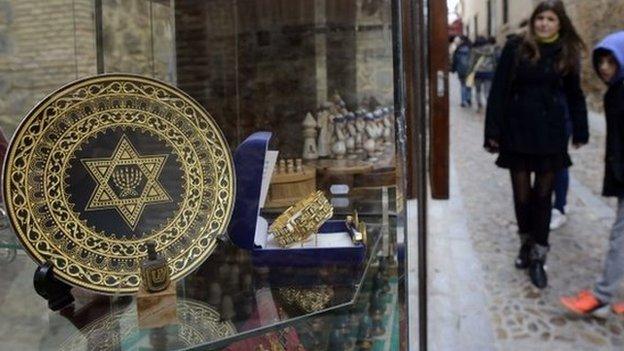
- Published24 December 2016
